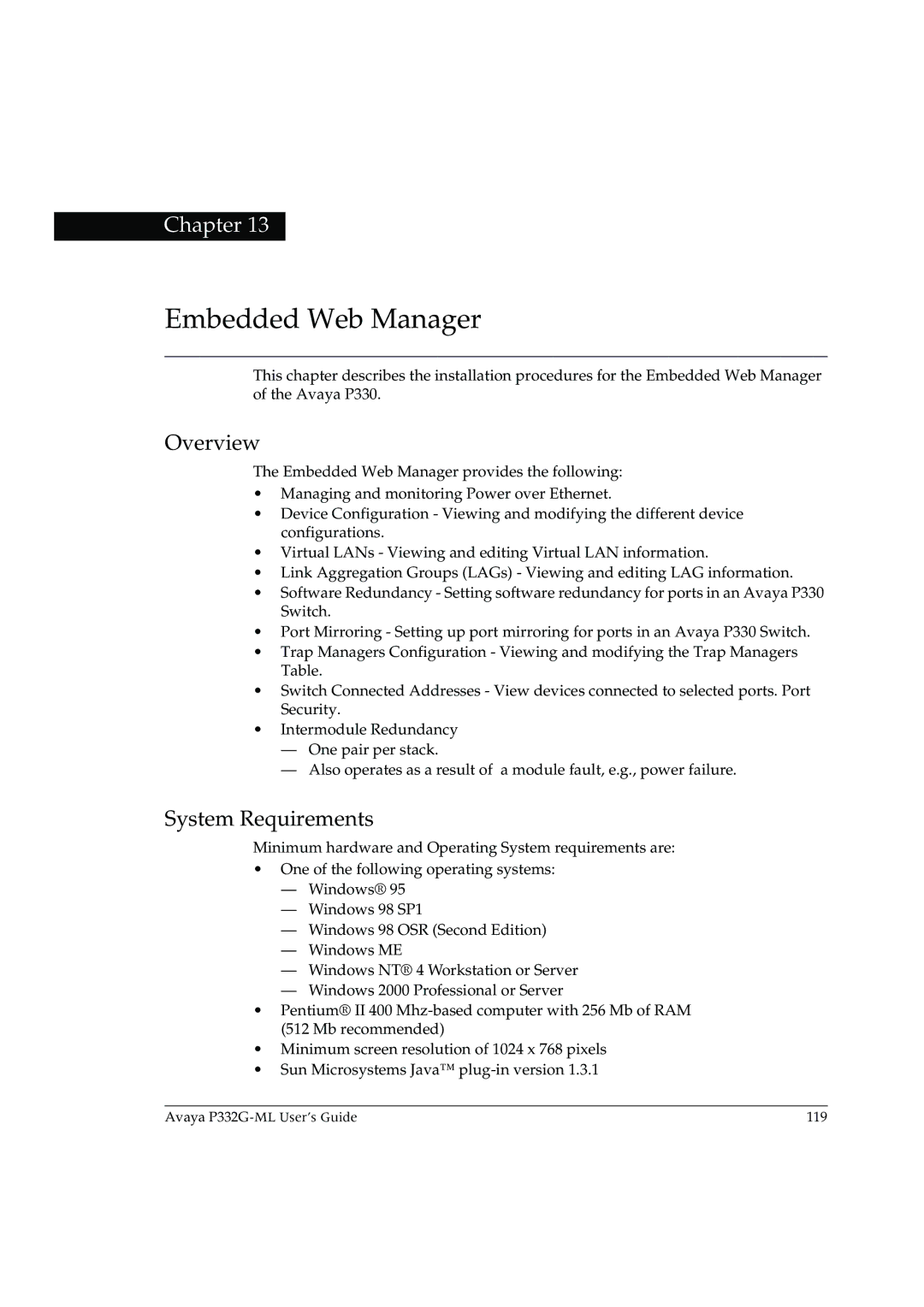
Chapter 13
Embedded Web Manager
This chapter describes the installation procedures for the Embedded Web Manager of the Avaya P330.
Overview
The Embedded Web Manager provides the following:
•Managing and monitoring Power over Ethernet.
•Device Configuration - Viewing and modifying the different device configurations.
•Virtual LANs - Viewing and editing Virtual LAN information.
•Link Aggregation Groups (LAGs) - Viewing and editing LAG information.
•Software Redundancy - Setting software redundancy for ports in an Avaya P330 Switch.
•Port Mirroring - Setting up port mirroring for ports in an Avaya P330 Switch.
•Trap Managers Configuration - Viewing and modifying the Trap Managers Table.
•Switch Connected Addresses - View devices connected to selected ports. Port Security.
•Intermodule Redundancy
—One pair per stack.
—Also operates as a result of a module fault, e.g., power failure.
System Requirements
Minimum hardware and Operating System requirements are:
•One of the following operating systems:
—Windows® 95
—Windows 98 SP1
—Windows 98 OSR (Second Edition)
—Windows ME
—Windows NT® 4 Workstation or Server
—Windows 2000 Professional or Server
•Pentium® II 400
•Minimum screen resolution of 1024 x 768 pixels
•Sun Microsystems Java™
Avaya | 119 |
